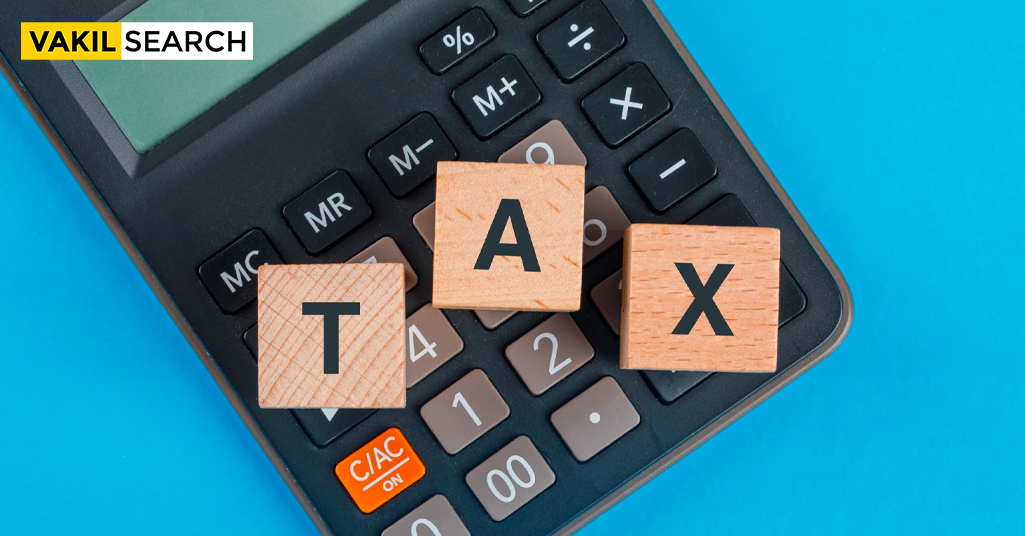Discover essential insights on tax return filing for sole proprietors. Understand the complexities, comply with regulations, and optimise filing efficiency with the Vakisearch legal experts.
Tax return filing is a critical aspect of every business, be it a corporation, a partnership, or a proprietorship. A proprietorship, also known as a sole proprietorship, is a business owned and run by one person with full control over the business. In such a business model, the owner is personally liable for all debts and liabilities of the business. When it comes to tax return filing, it can be slightly complex due to the intertwining of personal and business incomes. This blog will guide proprietors through key considerations, the filing process, common compliances, and strategies to maximise efficiency and accuracy in proprietorship tax return filing.

Key Considerations for Proprietors
The major factor to consider in a proprietorship tax return filing is that your business income is considered your personal income, as there is no legal distinction between you and your business. Hence, your business profits are taxed as individual income and are subject to Self-Employment taxes. Here are some other key considerations:
Deductible Business Expenses
It is crucial to record all business-related expenses accurately. These can be used as deductions and can significantly reduce your taxable income.
Home Office Deductions
If you use a part of your home for business, you may be eligible for home office deductions.
Self-Employment Tax
As a proprietor, you are required to pay self-employment tax, which covers Social Security and Medicare taxes.
Estimated Tax Payments
Proprietors typically need to make estimated tax payments quarterly since income tax isn’t withheld from their business income.
Step-by-Step Process to File Tax Returns for Proprietorship Businesses
Maintain Proper Records:
The first step is to maintain a record of all your income and expenses. This includes invoices, receipts, and other documentation.
Prepare Financial Statements:
Financial statements like a profit and loss statement can help you understand your business’s financial position.
Effortless tax projections – Use our Income Tax Calculator to streamline your financial planning with ease.
Fill out Form Schedule C or C-EZ:
This form helps calculate your business profit or loss, which you will include on your personal income tax return.
Report Your Income on Form 1040:
Your business income is your personal income, so you must include it on your personal income tax return.
Pay Self-Employment Tax:
Complete Schedule SE and attach it to your return to calculate your self-employment tax.
Submit Your Return:
Lastly, submit your return to the IRS. Consider consulting with a tax professional to ensure accuracy.
Common Compliances for Proprietorship Tax Return Filing
Compliance with the tax regulations is crucial to avoid penalties and interest. Here are the common compliances:
Timely Filing of Returns: Ensure timely filing of returns to avoid late filing penalties.
Payment of Taxes: Timely payment of self-employment tax and income tax is essential.
Record Keeping: Proper documentation is crucial as the IRS may request these documents if your return is audited.
Maximizing Efficiency and Accuracy
To ensure efficiency and accuracy while filing Partnership tax returns, consider using tax software or consulting a tax professional. You could also set up a separate bank account for your business to simplify the process of tracking your income and expenses.
Conclusion
Remember, tax compliance is not only a legal obligation but also an important aspect of your business’s financial health. A clear understanding of the tax laws and diligent record-keeping can help ease the process. It’s always wise to seek professional advice when dealing with tax matters to ensure you maximize your deductions and accurately report your income. For any queries, check with our tax experts at Vakilsearch
FAQ
What is the process of filing tax returns for a proprietorship business?
The process involves maintaining records, preparing financial statements, filling out Schedule C or C-EZ to report your business profit or loss, reporting your income on Form 1040, paying self-employment tax using Schedule SE, and finally submitting your return.
What are the key compliances that proprietors need to be aware of when filing tax returns?
Key compliances include timely filing of returns, timely payment of taxes, and maintaining proper records for potential audits.
Are there any specific forms or documents required for proprietorship tax return filing?
Yes, Schedule C or C-EZ is required to calculate your business profit or loss. Form 1040 is used to report your income, and Schedule SE is used to calculate your self-employment tax.
What are the consequences of non-compliance with tax return filing requirements for proprietorship businesses?
Non-compliance may lead to penalties for late filing and late payment, interest on unpaid tax, and potentially an audit.
How can proprietors ensure accuracy and avoid common mistakes when filing tax returns for their business?
Using tax software or hiring a tax professional can help ensure accuracy. Additionally, keeping a separate bank account for your business can simplify the process of tracking your income and expenses.
Read more



